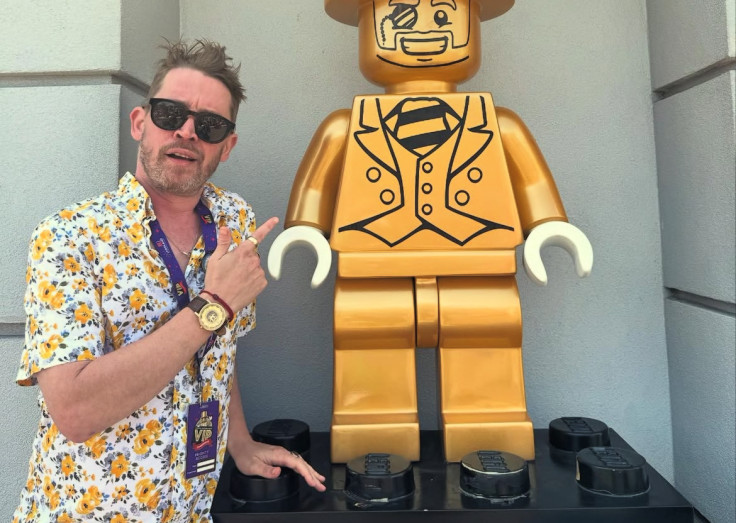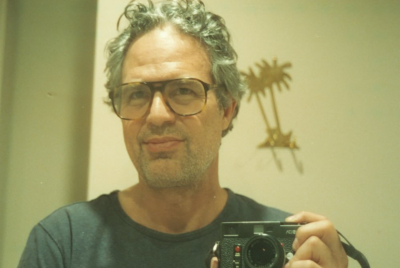Did Macaulay Culkin Die? TikTok Videos Go Viral For Insisting Actor Died Years Ago From Drug Overdose - Here's The Truth
Thousands on TikTok claim to remember Macaulay Culkin's supposed death, but the Home Alone star is alive, and the internet's confusion reveals how false memories spread online.

For weeks, TikTok has been filled with videos claiming that Macaulay Culkin, the child star of Home Alone, died years ago from a drug overdose. Millions of viewers have been left confused as users insist they vividly remember news reports of his death, only to discover that the actor is very much alive today.
This strange wave of false memories has once again triggered conversations about the Mandela Effect, a psychological phenomenon that causes groups of people to collectively misremember events.
TikTok Users Convinced Macaulay Culkin Is Dead
It all began when TikTok user yourstruly.tia posted a video saying she was certain the actor had died. She told her followers, 'I don't know if I'm tripping, but I could have sworn he passed away. I don't know what year it was. All I know is that he exposed the industry, and the next thing you know, he ended up on drugs — like, bad. And that's when he started looking like that. And then he died.'
Her video quickly went viral, gathering thousands of comments from users claiming they shared the same memory. Many insisted they remembered seeing the news on television and expressed confusion at Culkin's later appearances alongside fiancée Brenda Song and his Hollywood Walk of Fame star. One comment read, 'I literally remember sitting on my grandparents' floor while it was on the news! I remember seeing it with my own eyes!'
The Rise Of False Memories On Social Media
Others tried to rationalise the confusion, suggesting users might be mixing up Culkin with other celebrities who have passed away, such as Aaron Carter or Dustin Diamond from Saved by the Bell. Yet the consistency of the false memory, complete with supposed news coverage and emotional reactions,has made the phenomenon particularly fascinating.
This is where the Mandela Effect comes in. The term refers to a situation where large groups of people remember the same event incorrectly. Psychologists believe it happens when the brain combines real memories with misinformation seen online or discussed socially, leading people to believe something false is true.
What Is The Mandela Effect?
The term 'Mandela Effect' was coined in 2009 by Fiona Broome after she discovered that many people, including herself, wrongly remembered Nelson Mandela dying in prison during the 1980s. In reality, Mandela passed away in 2013. Broome was shocked that so many people could recall the same non-existent event, complete with imagined news reports and public mourning.
She went on to create a website documenting examples of collective false memories. Among the most famous is the confusion surrounding the children's book series The Berenstain Bears, which many recall as The Berenstein Bears with an 'e'. This and other examples have made the Mandela Effect a widely discussed topic in psychology and internet culture alike.
The Truth Behind The Macaulay Culkin Death Rumour
As for Macaulay Culkin, the rumour dates back to a 2014 Facebook hoax claiming that he had been found dead at age 34 in his New York apartment. The story quickly spread online, shared by unsuspecting users who believed it was true. In reality, Culkin was alive and touring with his comedy band, Underground Pizza.
@freeze.dried.raygun Macaulay Culkin is dead? #MandelaEffect #Explained #MacaulayCulkin #Dead
♬ original sound - Don Burrito
To mock the false reports, Culkin posted an image to the band's Instagram account showing himself in a Weekend at Bernie's-style pose, pretending to be a lifeless body. The caption jokingly suggested that he had been 'murdered'. A follow-up post soon after confirmed that the band was still on tour, putting the rumour to rest.
Why The Rumour Still Persists
Despite being debunked years ago, the death hoax continues to resurface whenever Culkin trends online. Some point to his past struggles with addiction as a reason why the story feels believable to many. While Culkin has addressed drug rumours in interviews, he has firmly denied ever having a heroin addiction.
Still, the persistence of this myth shows how misinformation spreads rapidly in the digital age. Once a rumour gains traction, it can embed itself in public memory, especially when reinforced by emotional recall or viral content.
© Copyright IBTimes 2025. All rights reserved.





















